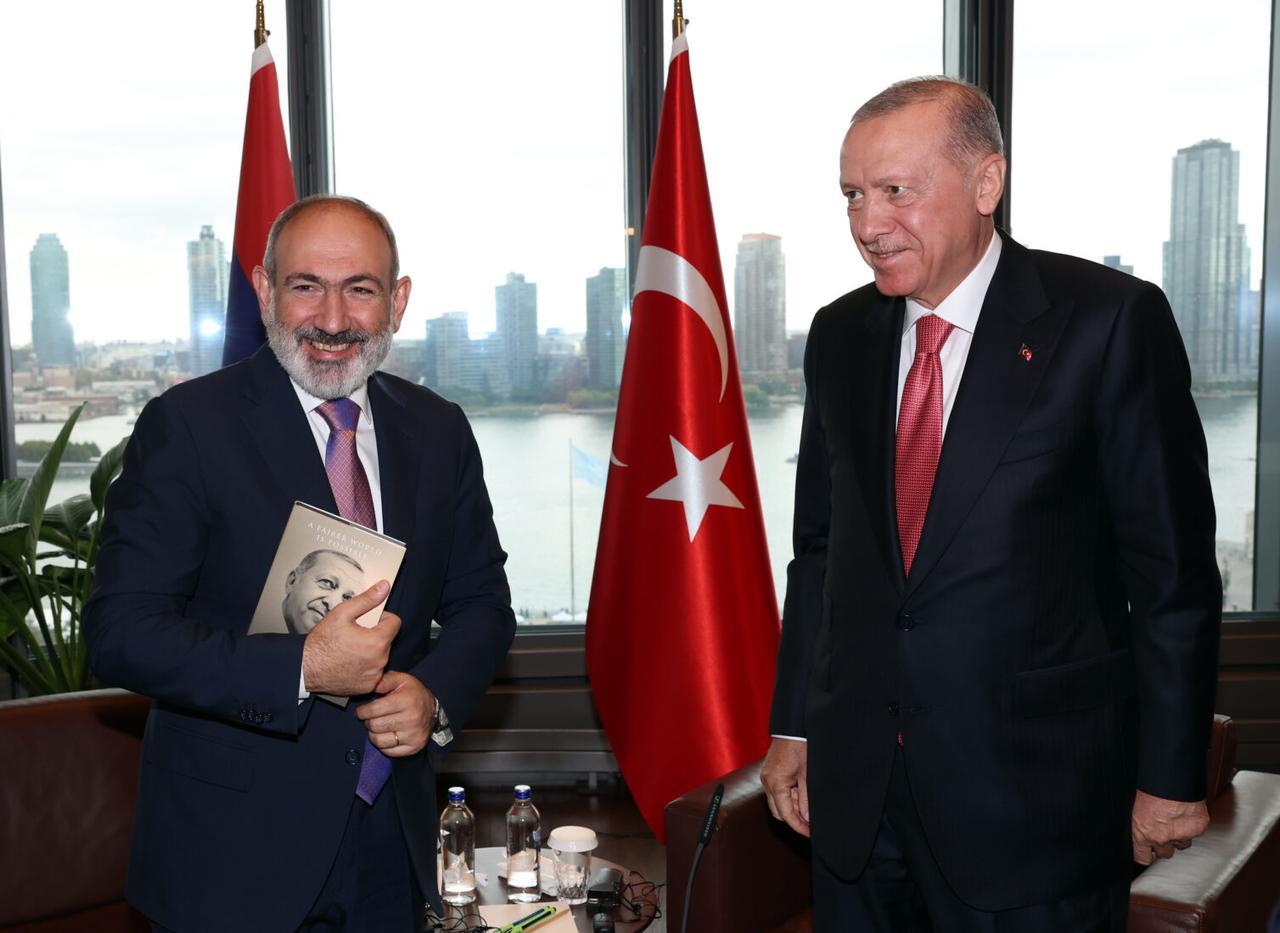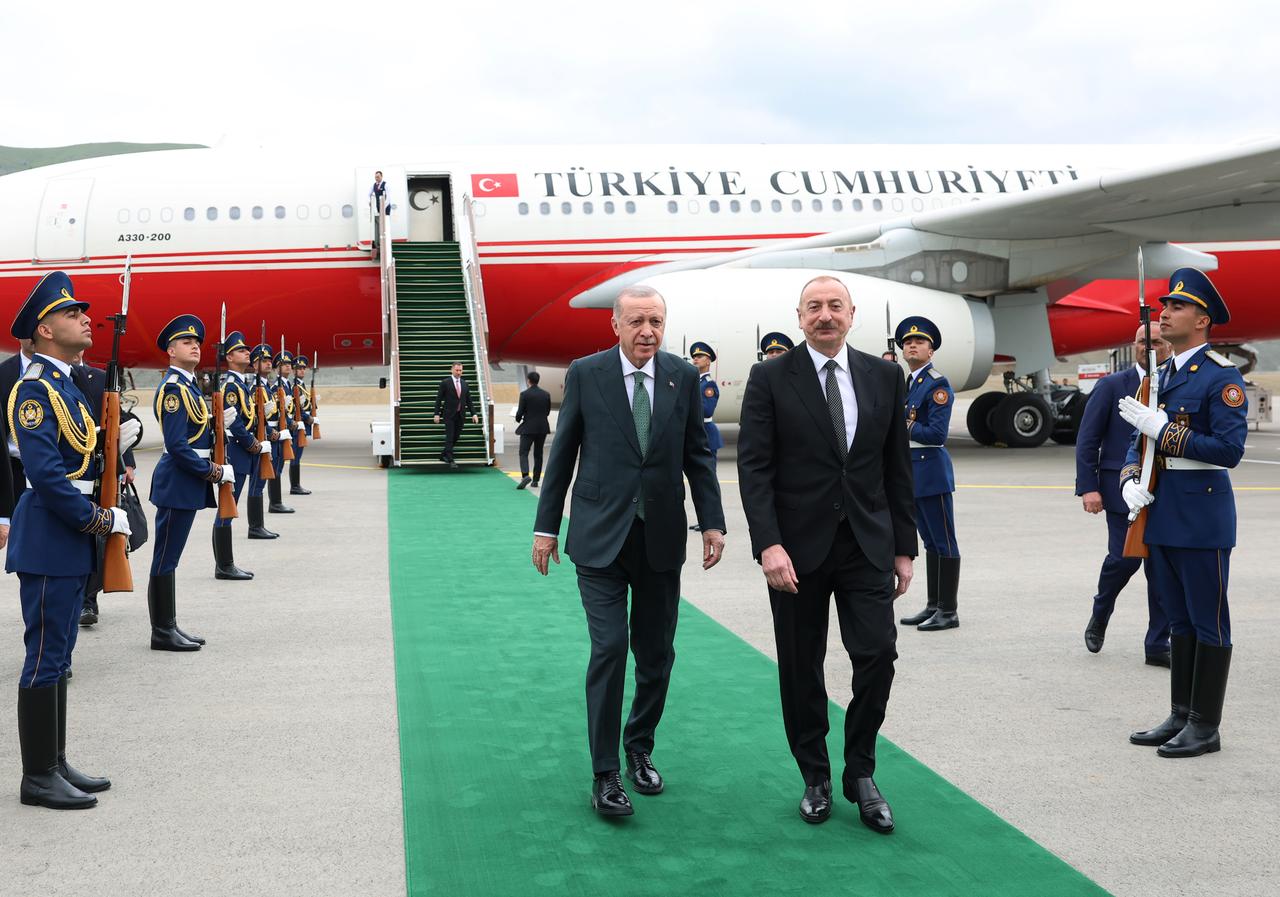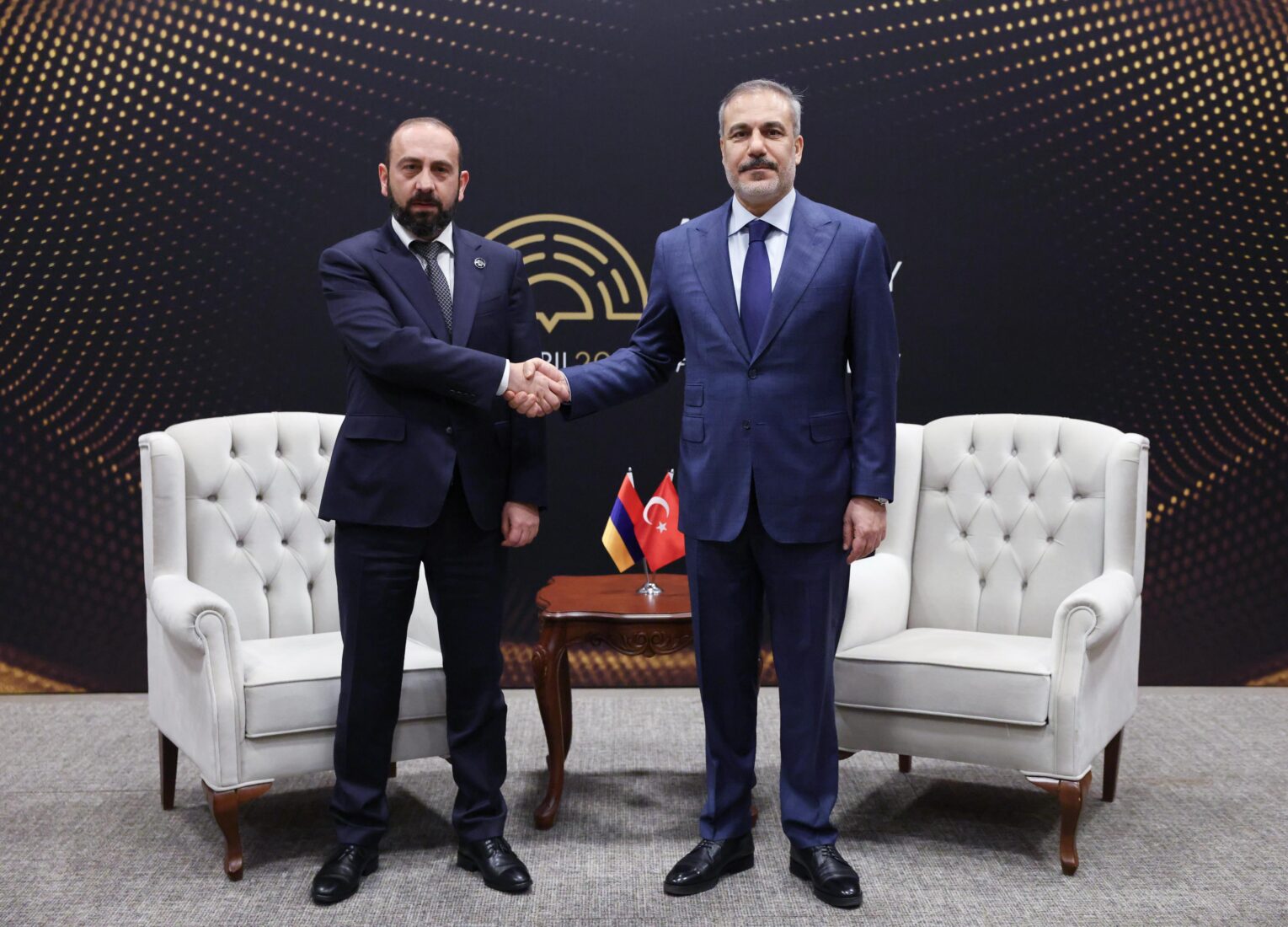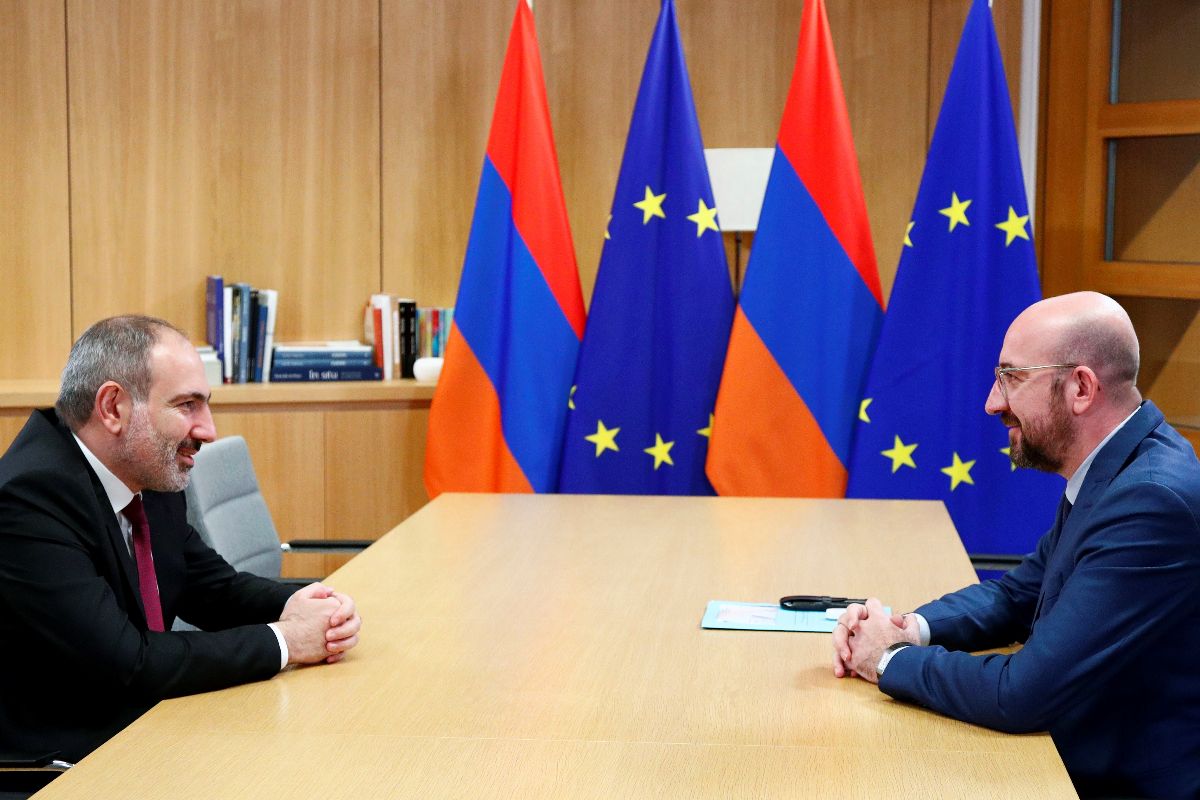
Türkiye and Armenia experienced a brief surge toward normalization in 2022, signaling potential thawing of a decadeslong frozen relationship. However, this momentum has since stalled, though the process is far from dead. Despite calls within Turkish political circles to open borders and normalize ties, major obstacles persist, chiefly stemming from Azerbaijan's strong objections and the geopolitical fallout of the 2020 Nagorno-Karabakh conflict.
Following the 2020 war, efforts by Ankara to extend a diplomatic hand to Armenia have been cautious and calculated, often treated as a bargaining chip in broader regional negotiations. Economic incentives from Azerbaijan, including substantial investments in Türkiye, have complicated Ankara's willingness to fully embrace normalization with Armenia.
Now, there is a historic opportunity and strong aspiration—if the right steps are taken.

Contrary to popular belief, Türkiye’s relationship with Azerbaijan is not unilaterally dominant. While Ankara once played the role of the “elder brother” in this alliance, the dynamic has shifted considerably. Azerbaijan, led by President Ilham Aliyev, now exerts significant economic and political influence over Türkiye, particularly due to its multi-billion-dollar investments in the Turkish economy and media sector. Moreover, the beginning of the Turkic world route, for which the state has put great strategic capital, passes through Azerbaijan.
This leverage has effectively bought political quietude from Ankara regarding the Armenian issue. Turkish policy in the South Caucasus is largely centered around Azerbaijan’s needs.
While the events of 1915 remain a source of historical disagreement, they are not the central barrier to normalization between Türkiye and Armenia today. More importantly, persistent political pressure from segments of the Armenian diaspora in the West has complicated the process by insisting on this issue as a precondition for engagement. This external influence often contrasts with the more pragmatic stance taken by Yerevan’s government, which has shown growing interest in regional cooperation and diplomatic normalization.
More immediate and tangible impediments arise from the conflict between Armenia and Azerbaijan. After the Soviet Union’s collapse, Türkiye recognized Armenia’s independence in 1991 but refrained from establishing diplomatic relations. Solidarity with Azerbaijan during the first Nagorno-Karabakh war led Türkiye to close its border with Armenia in 1993—a closure that remains in effect today.
Critically, Armenia has met previous Turkish conditions for border reopening, including the withdrawal of Armenian forces from occupied Azerbaijani territories. Despite this, Türkiye continues to delay normalization, primarily due to its alliance with Azerbaijan.
The Türkiye-Armenia border has been shut for over three decades, making it one of the longest-closed borders in Europe. This closure symbolizes political estrangement, hinders regional economic growth, and reinforces ongoing Russian influence.
Opening the border would offer substantial economic benefits for both sides, but especially for Armenia. It would reduce Armenia’s heavy reliance on Russia and allow it to diversify its foreign trade routes westward. The eastern Turkish provinces, currently underdeveloped, would also benefit from increased trade and mobility.
Beyond economics, opening the border holds the potential to ease historic tensions by facilitating greater cultural and social exchanges between Armenians and Turks. However, political will still remains weak, as other regional and international crises consistently push this issue down the diplomatic agenda.
This is precisely why actors like the EU need to step in and capitalize on Türkiye's influence in the region.

Russia’s traditional role as Armenia’s security guarantor is rapidly eroding. Despite deploying troops along Armenia’s borders, Russian influence is waning as many Armenians view Moscow as an unreliable partner, especially after its limited support during recent Azerbaijani advances.
Public opinion polls reveal a sharp decline in Armenian trust toward Russia, with approval ratings dropping from around 90% to below 30% within a few years. Armenia’s current leadership under Prime Minister Nikol Pashinian is actively seeking to diversify foreign relations, aiming for closer ties with the West while maintaining a cautious stance toward Moscow.
However, Russia remains a potent spoiler in the region, and its ability to influence Armenian politics—potentially through election interference or support for opposition groups—poses a persistent threat to Armenia’s sovereignty and regional stability.
The fact that countries like France sell arms to Armenia does not make things any easier, nor does it reduce Russian influence. The way to connect Armenia to Europe is through Türkiye.
At this point, a direct agreement that excludes Türkiye, as the EU has done with Central Asian states, is not possible in the Caucasus region.
While Türkiye and Azerbaijan enjoy a strategic, relatively cooperative alliance often described as “one nation, two states,” the Russia-Armenia relationship is more dysfunctional and asymmetric.
Meanwhile, Armenia struggles to reduce dependency on Russia, which exerts a quasi-abusive influence reminiscent of an overbearing parent.
Even though Azerbaijan leverages its alliance with Türkiye to maintain Armenia’s isolation, Türkiye would welcome any kind of economic mobility and opening up of space of that volume—only if Europe comes to the table, and a right bargain is possible.
At the popular level, Turkish and Armenian societies remain largely estranged. But the path Armenia needs to take goes beyond pragmatism. While Türkiye is too large, diverse, and preoccupied to hold grudges against any neighboring country, within Armenian society, hatred of Turks often overrides other ideals.
Armenia is still among the few countries where even Turkish travelers face safety concerns, making business activity virtually impossible.
Within Armenia itself, there is growing recognition that engagement with Türkiye could be vital for economic survival and reducing Russian influence. Yet, diaspora positions complicate this pragmatic approach.

The EU stands to benefit significantly from renewed Türkiye-Armenia ties, particularly through enhanced connectivity and regional stability.
As concerns over Russian influence in Georgia mount, Europe has little choice but to invest in Armenia's integration to provide an added boost to the Ukrainian front by pulling Armenia out of Moscow’s orbit.
Even though engagement with Türkiye is politically sensitive in Europe, many experts argue for selective cooperation, especially in economic and strategic domains like energy and transportation corridors.
In Washington, Armenia-Türkiye normalization has not been a priority. The Trump administration focused primarily on broader geopolitical and security issues, often sidelining the South Caucasus peace agenda.
Nonetheless, President Trump’s transactional approach favors actors perceived as having leverage, and Armenia’s comparatively weak position limited its influence.
Although there have been signals from Ankara of a willingness to open borders as part of negotiations, U.S. political capital has not been effectively deployed to advance this cause.
Armenian diaspora lobbying and geopolitical calculations in Washington further complicate potential breakthroughs. If Trump ever decides to “punish” Putin, this possibility could come back to the table.
A frozen conflict risks perpetuating instability, population decline in Armenia, and missed opportunities for regional integration. Any pro-Russian shift in Armenia’s government or renewed conflict could close windows of opportunity indefinitely.
Ultimately, resolving Türkiye-Armenia tensions will require sustained engagement from major powers and a willingness to balance historical grievances with pragmatic geopolitical interests.